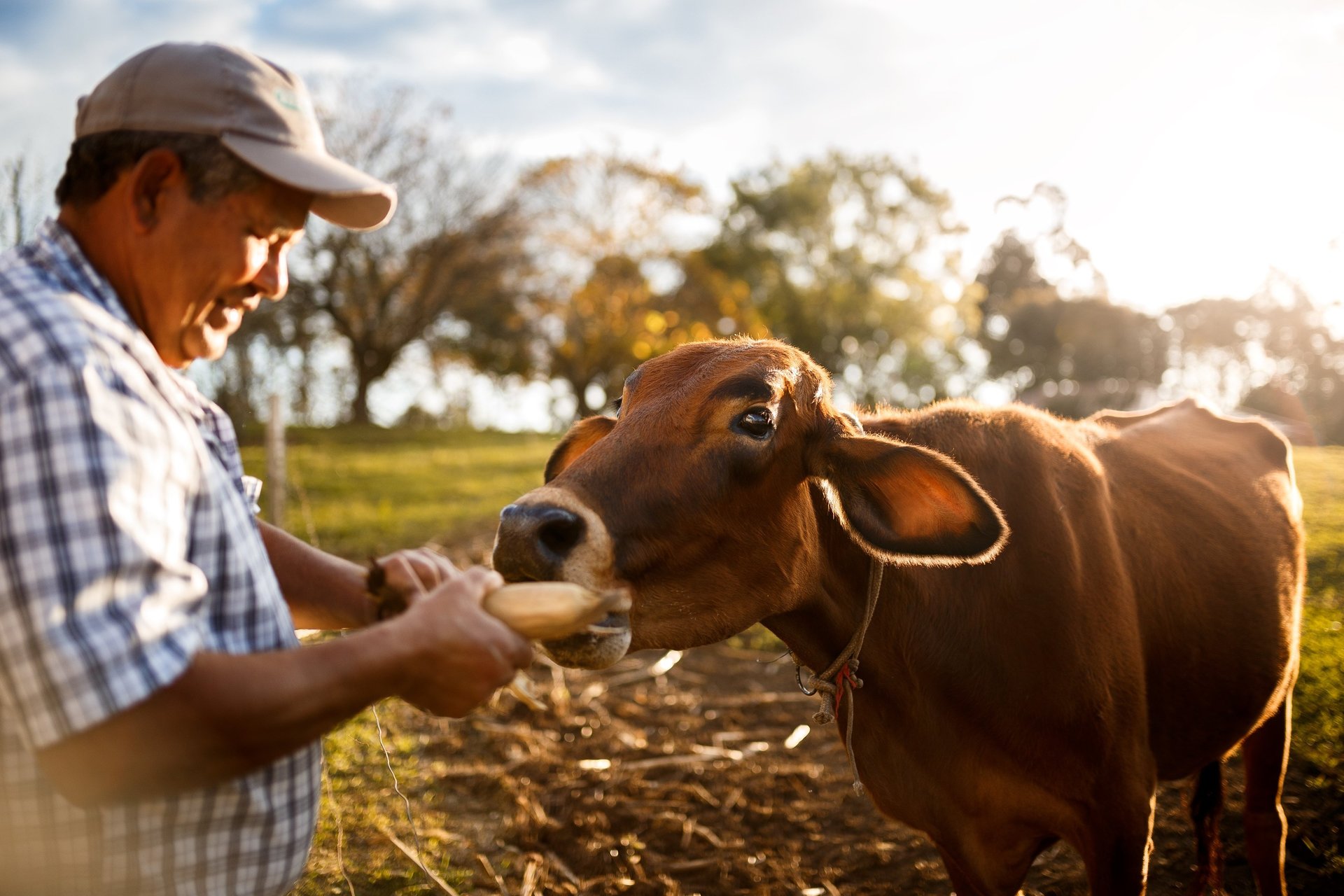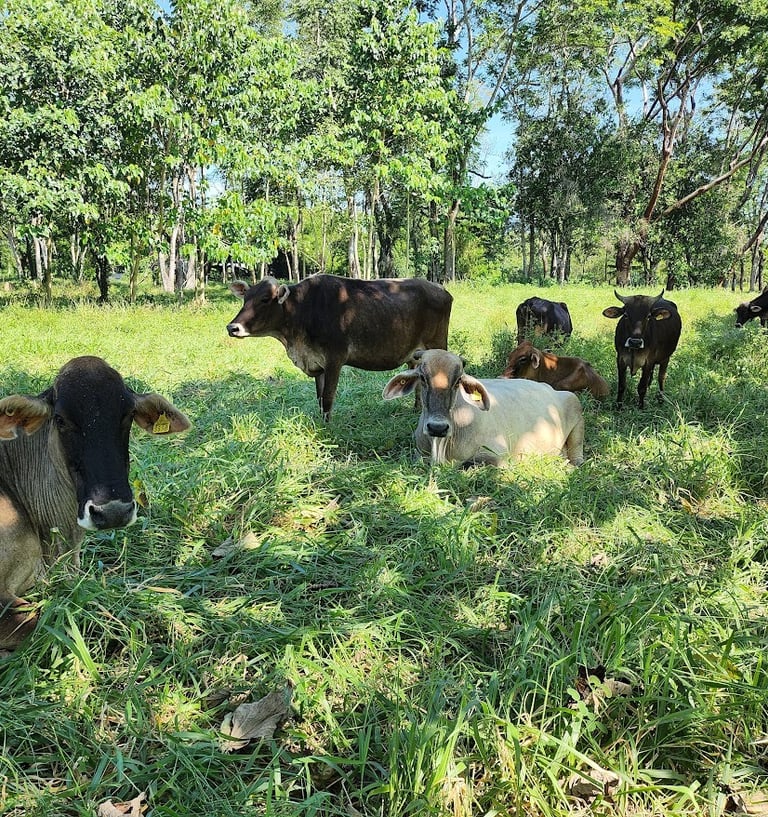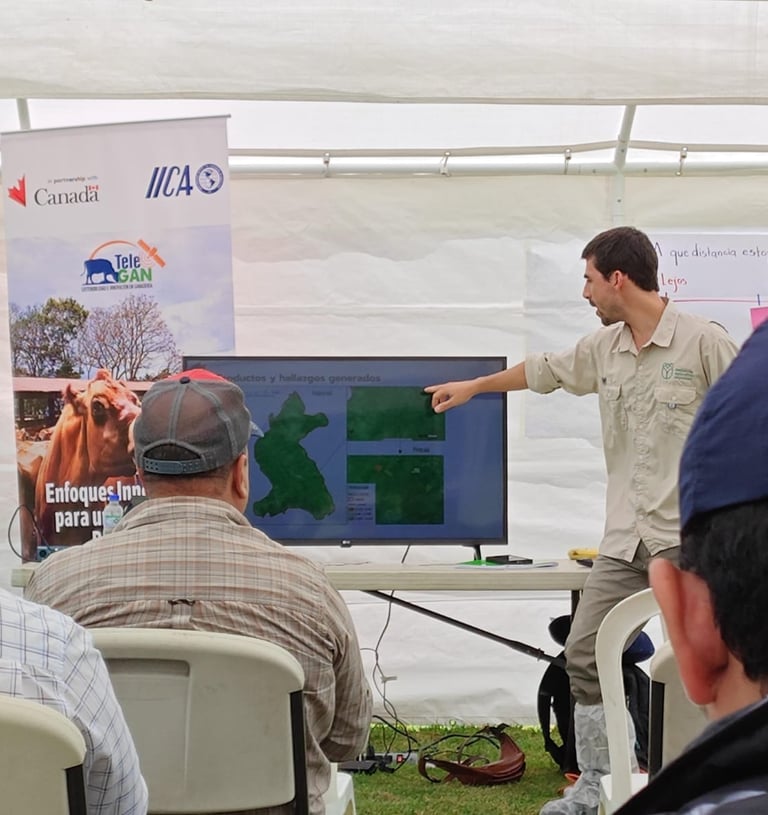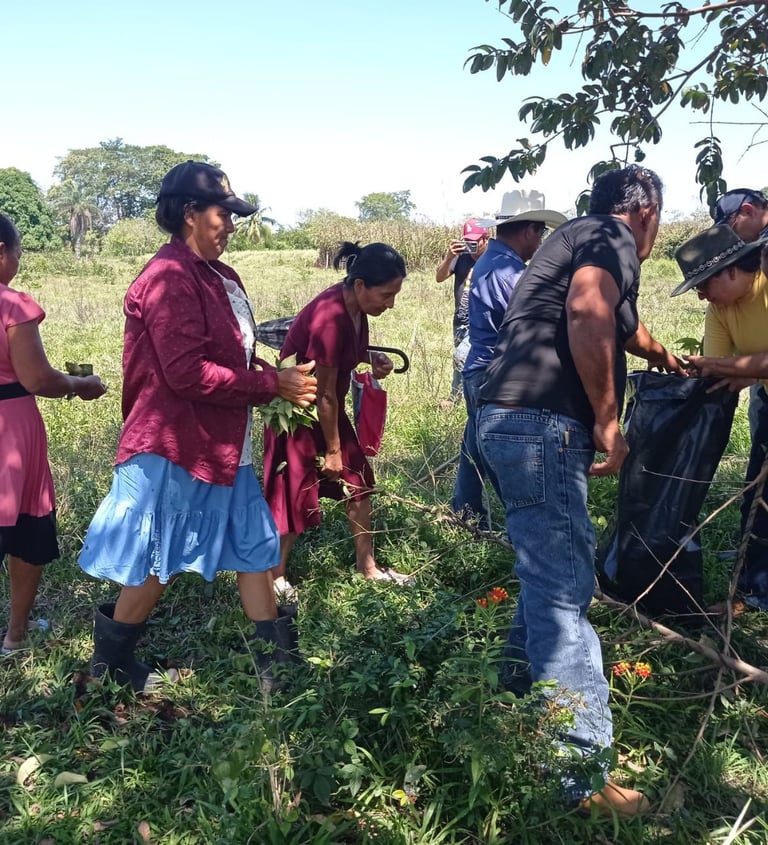
Technical Areas
TeleGAN is based on three technical pillars: sustainable livestock practices, the use of remote sensing for farm management, and inclusion with a territorial approach. These pillars are articulated to strengthen resilience, sustainability and equity in the livestock territories of Mexico and Guatemala.
Sustainable Livestock






The project promotes climate-resilient livestock farming based on learning-by-doing, local knowledge and innovation. Through the Field Schools, farmers strengthen their capacities on topics such as pasture management, silvopastoral systems, nutrient block production, animal health and soil conservation.
In the demonstration plots, producers experiment and show how these practices work in real conditions, facilitating knowledge exchange and collective learning.
Satellite images are incorporated as visual support to analyse vegetation cover and soil moisture, and the active participation of women, youth and indigenous communities in technical learning is promoted, recognising their knowledge, needs and preferences for farm management.
Remote sensing for farm management
TeleGAN promotes the use of satellite imagery as a practical tool for livestock management. Since the first year, introductory workshops on the use and interpretation of NDVI (vegetation index) and NDMI (moisture index) maps have been held, allowing producers to become familiar with key concepts on pasture health and water availability.
The project is developing a progressive web application (PWA) that leverages satellite monitoring to provide producers with alerts and recommendations for pasture management, water use and climate adaptation.
In addition, citizen science is promoted as a key tool: farmers can record their observations from the field to validate satellite data and strengthen collective learning based on local realities.
Inclusion with a territorial approach
Social and territorial inclusion is central to all TeleGAN's actions. Based on a participatory gender and vulnerability analysis, specific barriers faced by women, youth and members of indigenous peoples in access to land, decision-making, credit and technical training were identified.
To respond to these realities, the project promotes differentiated training spaces, accompaniment strategies to strengthen local leadership and the articulation with livestock associations, women's organisations and community authorities.
Priority is given to an intersectional and culturally relevant approach that values ancestral knowledge and recognises diversity as a strength for climate resilience and the transformation of the livestock sector.
